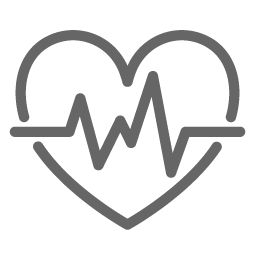Cardiac risk information
Inform patients and their GPs of potential cardiac risks associated with treatment, the importance of ongoing monitoring and management of cardiac health and cardiovascular risk factors based on their baseline and future risk of cardiac dysfunction, and, encourage a heart-healthy lifestyle.
1. It is important for health care providers to initiate the discussion regarding the potential for cardiac dysfunction in individuals in whom the risk is sufficiently high before beginning therapy.
2. Clinicians should regularly evaluate and manage cardiovascular risk factors such as smoking, hypertension, diabetes, dyslipidemia, and obesity in patients previously treated with cardiotoxic cancer therapies. A heart-healthy lifestyle, including the role of diet and exercise, should be discussed as part of long-term follow-up care.
How this guidance was developed
This practice point is informed by several source recommendations which recommend a comprehensive assessment of cardiovascular health and cardiovascular risk factors before and after cancer treatment (ASCO 2017). The importance of communicating this information to patients and their primary care providers (GPs) was considered an important aspect of care that is not included in existing guidelines.
It is acknowledged that traditional cardiac risk factors, as well as therapy-related risk factors, may be predictive of cancer therapy-related cardiac dysfunction (as per the Position Statement and new risk assessment tools from the cardio-oncology study group of the Heart Failure Association of the European Society of Cardiology in collaboration with the International Cardio-Oncology Society 2020)
Cardiac risk information
Inform patients and their GPs of potential cardiac risks associated with treatment, the importance of ongoing monitoring and management of cardiac health and cardiovascular risk factors based on their baseline and future risk of cardiac dysfunction, and, encourage a heart-healthy lifestyle.
This practice point is informed by several source recommendations which recommend a comprehensive assessment of cardiovascular health and cardiovascular risk factors before and after cancer treatment (ASCO 2017). The importance of communicating this information to patients and their primary care providers (GPs) was considered an important aspect of care that is not included in existing guidelines.
It is acknowledged that traditional cardiac risk factors, as well as therapy-related risk factors, may be predictive of cancer therapy-related cardiac dysfunction (as per the Position Statement and new risk assessment tools from the cardio-oncology study group of the Heart Failure Association of the European Society of Cardiology in collaboration with the International Cardio-Oncology Society 2020)

